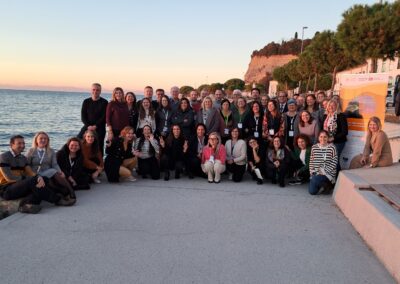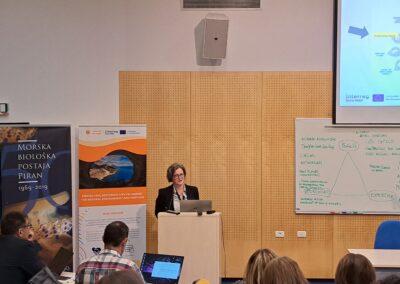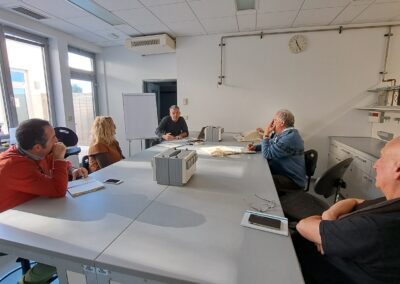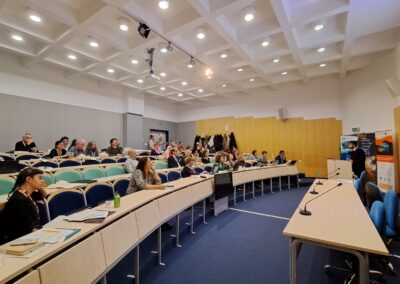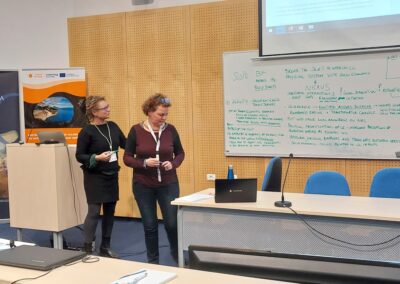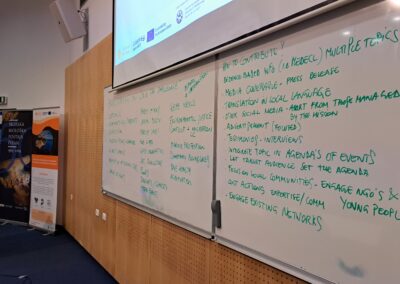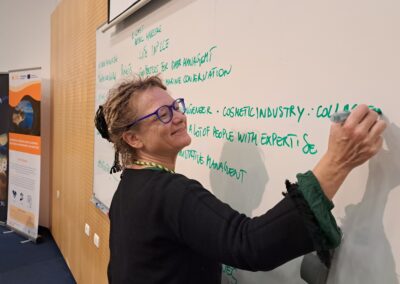Natural Heritage Mission convened in Piran for its first Institutional Dialogue event, hosted at the Marine Biology Station on the 23rd and 24th of November. This event, a cornerstone for governance improvement, aimed to facilitate the exchange of best practices among stakeholders from different Mediterranean territories.
The inaugural session allowed all partners and associated partners from the project to familiarise themselves through small-group exercises, fostering the sharing of expertise, projects and experiences. The goal was to identify opportunities for diverse stakeholders within the Mission, emphasising common expectations such as networking, experience exchange, and policy influencing.
First Annual Institutional Dialogue: A Step Towards Better Governance
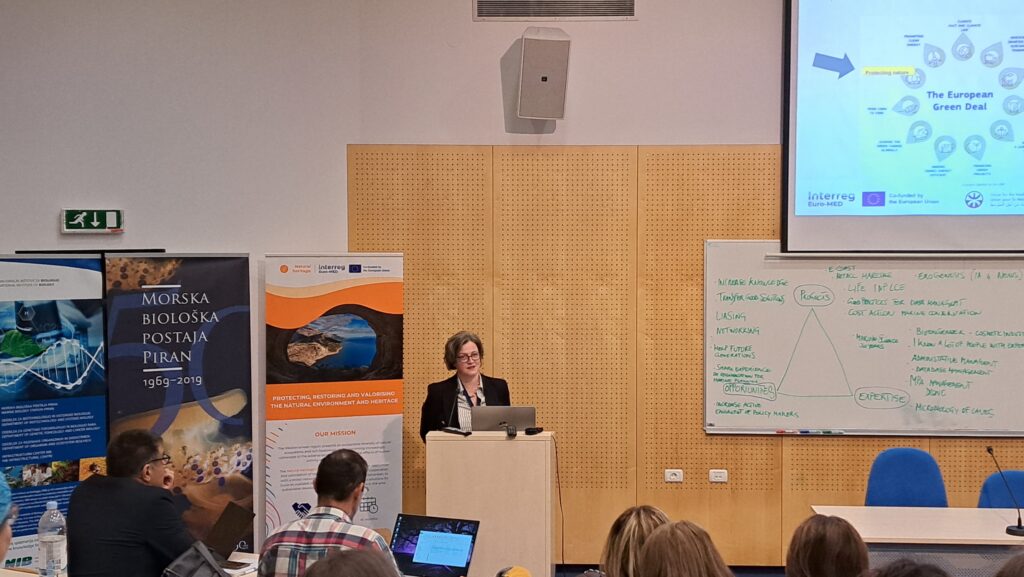
A pivotal juncture unfolded during the event with the initiation of an institutional and policy dialogue, focusing on thematic areas addressing the challenges of climate change and biodiversity crises.
Caroline Pottier, the team leader responsible for research and innovation in the Directorate-General for the Environment of the European Commission, delivered a comprehensive overview of the EU’s policy landscape concerning biodiversity and climate change, emphasising their implications for the Mediterranean region. Special attention was brought to the EU Green Deal, the Nature Restoration Law, the EU Biodiversity Strategy, and the Post-2020 Global Biodiversity Framework (GBF).
The GBF serves as the backbone of the four thematic Working Groups within the Mission: 1) Area-based Conservation; 2) Climate Change Mitigation and Adaptation; 3) Evaluating the Socio-Economic Importance of Biodiversity; and 4) Ecosystem Restoration and Nature-based Solutions. Comprising all the partners and associated partners from the Mission’s projects, and key external stakeholders, these Working Groups form the nucleus for the Mission’s activities, evolving into the future Mediterranean Resilience Network (MRN).
A landmark moment occurred as members of the four Working Groups convened in person for the first time, engaging in discussions about the groups’ focus, targeted policies, and overall scope. Principal activities were underscored, with a unanimous agreement on prioritising capacity building, networking, policy adaptation at the regional/local level, and the sharing of knowledge and experiences through case studies and best practices.
Co-creating Activities: Shaping the Future Together
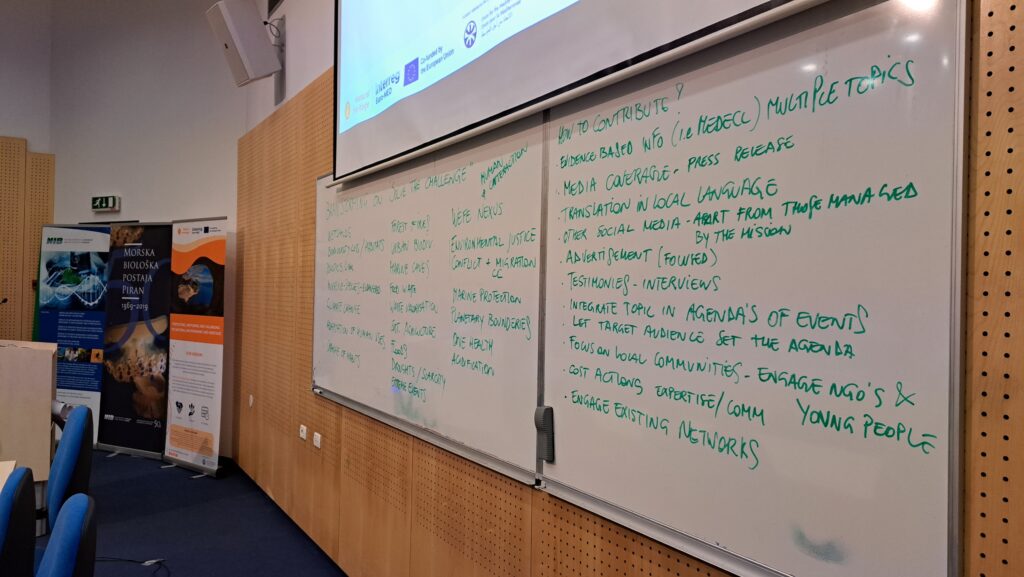
The community proceeded to share their experiences on transferring solutions and establish key criteria for successful uptake. The criteria encompassed the cost of implementation, legislative frameworks, engagement of key players, accessible information for decision-makers, capacity of technicians, feasibility of monitoring, and trade-offs between climate change mitigation and adaptation, and biodiversity conservation, among other factors.
The primary objective was to establish a set of criteria for assessing the potential transferability of solutions. This transference process is envisioned to unfold through a diverse range of customised in-person and online settings, ultimately influencing policy-making processes at various levels and targeting specific territorial clusters. The approach will be executed through an ownership model, inviting community members to actively embrace the presented solutions.
In summary, the event was a significant step toward a sustainable, smarter, and greener Mediterranean, uniting stakeholders, sharing knowledge, and charting a course for effective governance in the region.
See here the key takeaways from the event.

